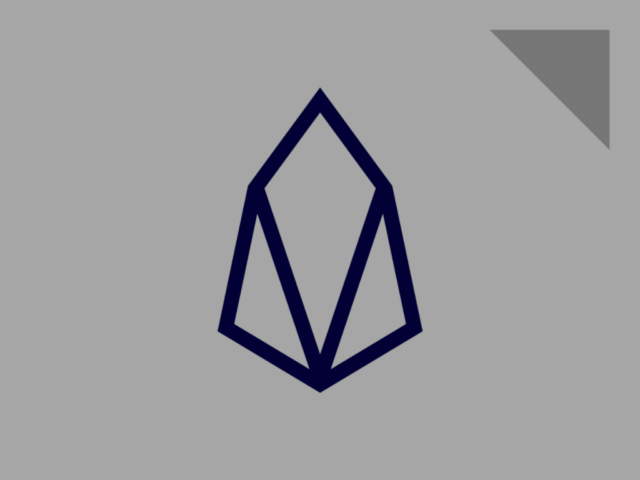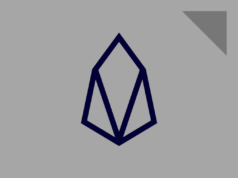Welcome to the latest bi-weekly roundup of the most discussion-worthy news content related to Block.one’s blockchain network and its EOS cryptocurrency, in addition to a brief look at periodical price movements.
October 8th
Block.one Launches ‘EOSIO 2’ Upgrade For Developers
After much anticipation and prior announcements, Block.one has officially launched the 2.0 upgrade for its EOSIO blockchain development architecture – bringing along a series of developer-focused improvements.
According to the announcement: this marks a significant progression from the over-dependency of prior system on generic, general purpose ‘WebAssembly (WASM) engine’ code.
Additional improvements include the implementation of “multi-threading support for net_plugin”.
“EOSIO was the first blockchain software to use a WebAssembly (WASM) engine to improve performance, but in time, we outgrew existing general purpose WASM engines and knew we could do more…
Our solution: build our own, designed from the ground up with blockchain in mind. EOS VM, our purpose-built blockchain WASM engine, runs the EOS Mechanics WASM CPU benchmarks up to 16x faster than Binaryen, which was released with EOSIO 1.0.”
Block.one (Press release)
The upgraded architecture brings along with it a bespoke, purpose-built WASM engine with the intention of increasing processing speeds represented through “WASM CPU benchmarks up to 16x faster than Binaryen”.
One feature of the EOSIO 2 is the forthcoming ‘EOSIO Quickstart Web IDE’ which was created to help reduce the obstacles to access that may face new developers. One such feature is the ability to create demo applications as well as seeing the results of code updates in “real time”. EOSIO Quickstart Web IDE is described as “a development tool that allows new developers to go from start to ready-to-build in minutes” and is currently in alpha stage.
“To improve the security and scalability of block production, weighted threshold multi-signature block support provides a permission layer that allows for multiple block signing keys in a flexible scheme that will enable redundant block signing infrastructure to exist without sharing any sensitive data.”
Block.one (Press release)
Another advertised feature is the ‘Weighted Threshold Multi-Signature Block Production Support’ – described as “a secure way for block producers to use different keys to sign blocks on primary and backup block production hardware”.
EOSIO 2.0 additionally features the first implementation of the ubiquitous WebAuthn technology, which enables almost-universal secure access to public key data across various various platforms. WebAuthn was developed by W3C, a development consortium comprised of various blue chip organisations including Microsoft.
According to the announcement, the ‘three core components’ of EOSIO 2.0 are as follows…
- EOS VM Interpreter: “a WebAssembly interpreter providing extremely fast parsing/loading, and deterministic and efficient time bound execution. Designing the interpreter from the ground up has enabled us to make room for future debugging support for smart contracts.”
- EOS VM Just In Time (JIT) Compiler: enables superfast native code generation from WASM, with a primary benefit of enhanced speed.
- The EOS VM Optimized Compiler: “it uses a specialized compiler framework (LLVM) that leverages a multipass compilation architecture. The resulting native code from the Optimized Compiler is often an order of magnitude faster than the same code executed within WABT, Binaryen, EOS VM Interpreter, and EOS VM JIT. Most importantly, it is even faster than the existing WAVM engine, but unlike WAVM it can be used safely on the blockchain utilizing our tier-up design.”
October 8th
Block.one and its $24 Million SEC settlement
Block.one has settled arbitration with the U.S. Securities and Exchange Commission (SEC) for a total of $24 million dollars in civil penalties, many of which pertaining to its 2017 token sale event.
The SEC characterises Block.one as a Cayman islands-registered technology company, established in 2016, which developed the EOSIO software described as “an operating system that would underlie one or more anticipated EOSIO-based blockchains”.
This settlement was offered by Block.One, and subsequently agreed upon by the SEC, and the company has not released any official statement as of now. As a result, the company has also consented to a cease-and-desist order issued by the commission regarding future sales.
“A number of US investors participated in Block.one’s ICO…
Companies that offer or sell securities to US investors must comply with the securities laws, irrespective of the industry they operate in or the labels they place on the investment products they offer.”
Stephanie Avakian, Co-Director of the SEC’s Division of Enforcement
According to the ‘administrative proceeding’ legal documentation published by the SEC, all tokens that were sold as a part of the Block.one ICO (which, it must be noted, are different from the EOS tokens currently in circulation) were actually ‘securities’.
As securities: the fact that Block.one, which has two offices in Virginia and a team in Los Angeles) failed to register its token sale with the SEC in any capacity constitutes one of the penalties it has received from the commission.
“A purchaser in the offering of ERC-20 Tokens would have had a reasonable expectation of obtaining a future profit based upon Block.one’s efforts, including its development of the EOSIO software and its promotion of the adoption and success of EOSIO and the launch of the anticipated EOSIO blockchains.
SEC (Administrative Proceedings document)
Another penalty cited by the SEC related to what it infers to be a lack of due diligence when conducting the ICO sale relating to U.S. customers, who would have to be omitted from participation to evade SEC jurisdiction.
Whilst some measures were implemented by Block.one to prevent US citizens from investing in the ICO (such as blocking U.S.-based IP addresses), the SEC claims that Block.one failed by not implementing proper point-of-sale KYC checks to ensure the buyers were not US citizens.
Such participants, theoretically, could have still purchased the tokens if using a computer abroad or through the use of a VPN / proxy).
“Block.one did not provide ICO investors the information they were entitled to as participants in a securities offering…
The SEC remains committed to bringing enforcement cases when investors are deprived of material information they need to make informed investment decisions”
Steven Peikin, Co-Director of the SEC’s Division of Enforcement (press release)
October 12th
Deutsche Bank Claims First EOS Digital Bond
Deutsche Bank AG has announced the launch of the ‘Digital bond (dbond) DBAAAAA’ which it claims to be ”the first (as we are aware of) digital bond is issued on the EOS blockchain!”, and has been issued via the ‘thedbondsacc’ contract.
“Dbond DBAAAAA is put as a collateral in thedeposbank smart contract and stablecoins DUSD are issued with respect to the current price of DBAAAA.
Stablecoins are issued to the possession of unitedbridge account.”
Deutsche Bank (official announcement)
dbond has been made possible through an escrow agreement signed with a “licensed UK custodian” (Queen Street Finance), resulting in a USD-based bond which is to be “locked within custody until the maturity time”.
Specifically, the bond is to be nominated in ‘DUSD’, which is a stablecoin created by ‘Depos Technologies’ (“thedeposbank contract”).


Information correct as of 00:40 PM (GMT) , 5th November 2019



